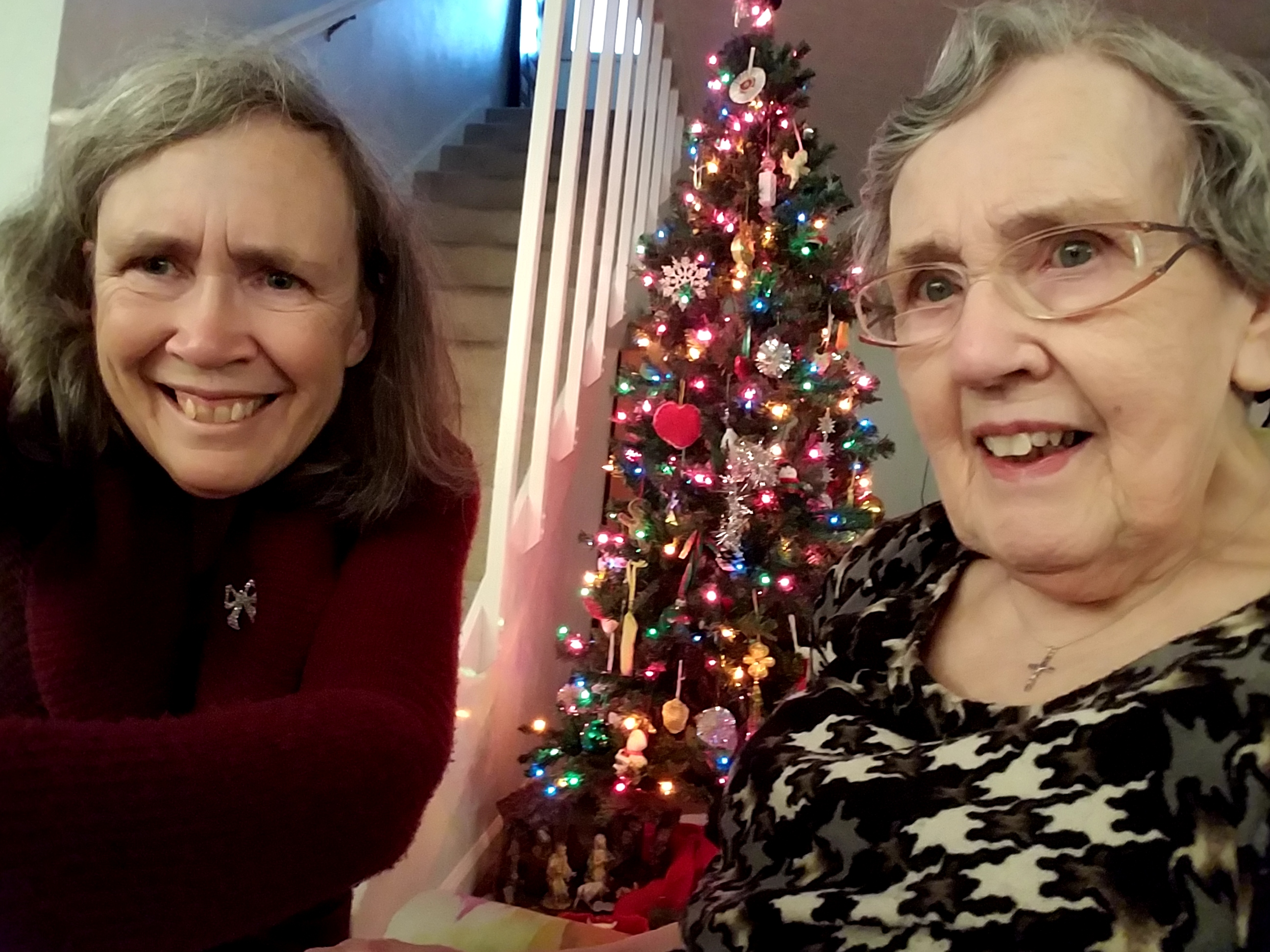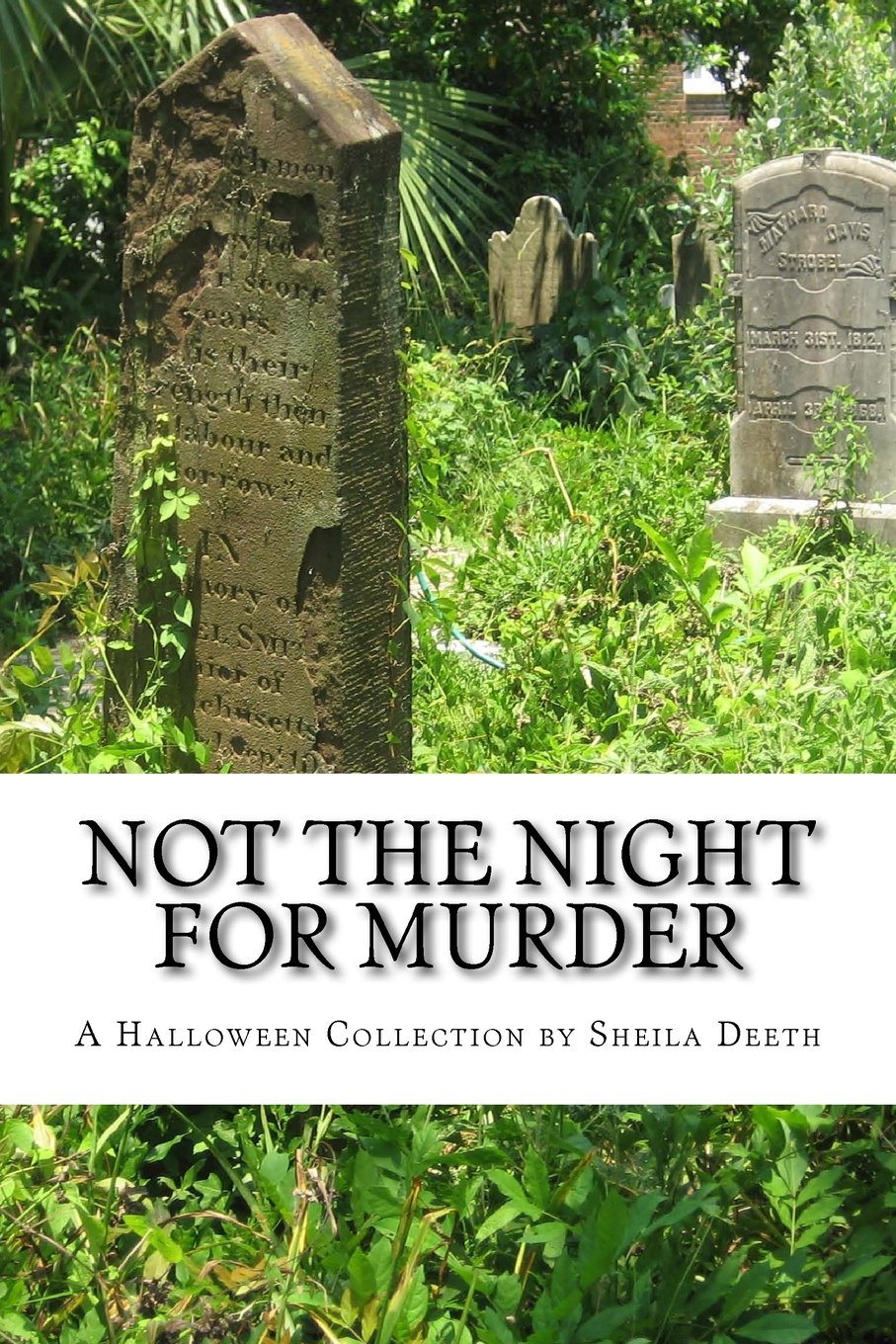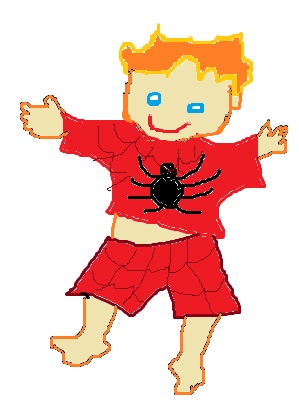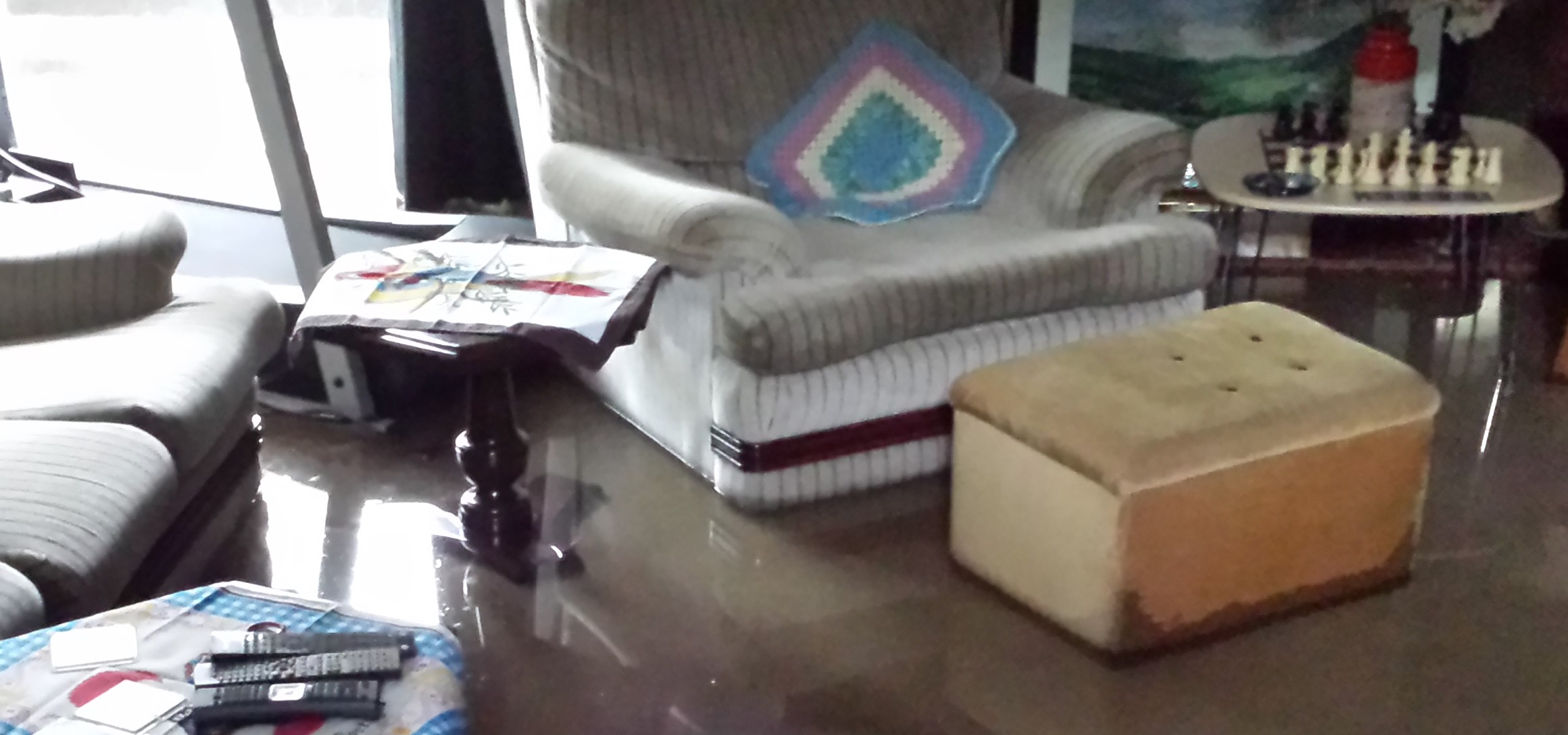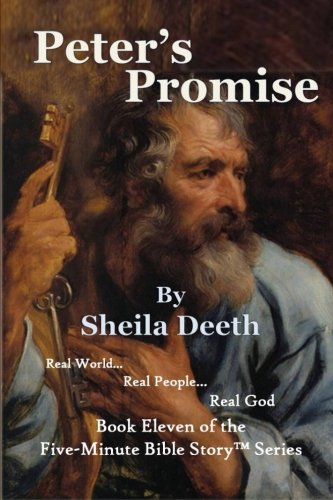I was going to write a blogpost soon, but that was hours ago. I was going to advertize my new novellas soon, but that was days ago. My husband was going to choose paint colors soon, but that was months ago. And my next novel, Subtraction, was going to come out soon, but how soon is soon?
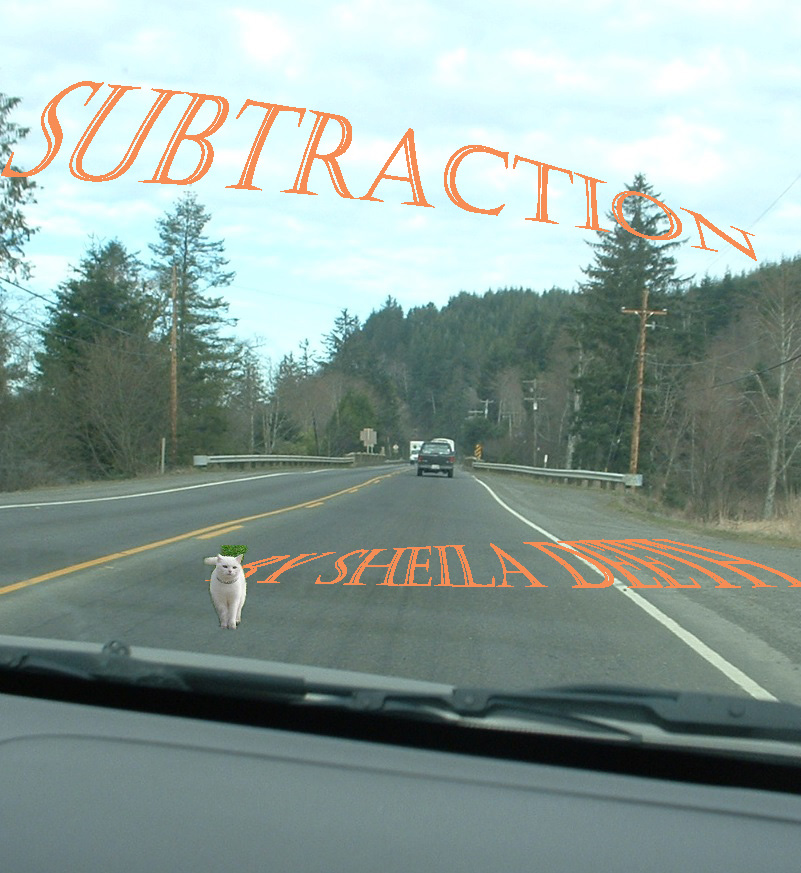
Then yesterday I got good news. Subtraction has a tentative release date of August 1st. Hurray! So now I shall have to advertize soon, beg for reviews, try to get the book into stores… and dream. And definitely dream. Because Subtraction completes a trilogy begun with Divide by Zero and continued in Infinite Sum. Sure, I’m working on Imaginary Numbers now, but that will follows lives on different paths. Subtraction completes the arc of lives wounded by Amelia’s death. Subtraction follows the absent father, and places him very present on center stage. And I can’t wait to see how it will be received.
As to those novellas, perhaps they’ll be fodder for another blogpost, coming “soon.” But for now, here’s a taste of Subtraction, following the writing prompt.
Writing Prompt:
Our writer’s group’s experimenting with different points of view – it’s amazing how they can feel like different authors when you let them on the page. So…
- Imagine a teacher walking into a classroom. The students stare.
- Start the story in first person from the teacher’s point of view. “New class. New students. What do I do? Will they listen?” and write for just 5 minutes.
- Continue in 3rd person omniscient – what does the teacher look like? What about the students. What are they thinking? What does the teacher think? How does the lesson begin? 5 minutes again.
- Then finish with nothing but dialog between teacher and students, and see where it takes you.
When you’ve finished, meet Andrew from Subtraction, as he meets his new class:
Part 1
1
“Now children, today I will teach you to subtract.” Andrew marched to the front of the classroom, ready to start his second year with these kids. He frowned as he pondered whether addressing a middle-grade, special-needs audience as children might be insulting, but his mind seemed devoid of alternative words as it sank into more familiar mathematical terms. “Subtract,” he repeated. To take away, abuse, discard, destroy…
Youthful faces, ranging from blandly accusing to sleepily bland, stared back at him, and clearly couldn’t care less if he frowned or cried. Faint groans arose, inspiring that familiar tightness in his chest. But these students, subtracted from their regular classes, weren’t rejects; not really; not yet; Andrew wasn’t going to fail them if he could help it.
“Sub-traction.” He spoke the syllables carefully and wrote the word with a purple flourish on the whiteboard. The pen squeaked louder than the nervous quiver of his throat while he half-turned to check the children were seated, and to see who was laughing.
A class clown bounced on his chair in the middle of the room. “Is that like action that’s not acting right?” Beetled eyebrows wiggled, mimicking the bouncing of the tall boy’s limbs.
“Nah,” groaned the one known as Jonah the Whale, squashed like a deflated football in his seat near the door. The force of Jonah’s voice blew strands of sandy hair up like a helmet, and he clawed his armpits with stubby fists. “ Sub-track; it’s like acting subhuman, like what you do.” He pointed to the clown.
Andrew rapped a ruler on the desk. “No teasing in class,” he insisted. Then he repeated, slowly, solemnly—fiercely driving down the whimper of his new-year apprehension— “We’re studying subtraction.”
For a moment, the deep, cultured tone of his own voice distracted him. Who am I? he wondered, and who am I to teach them? But he couldn’t pause to evaluate the answer. “Subtraction is sometimes called taking away.” And what has been taken from me?
Andrew’s eyes wandered, taking in shapes, positions, posture, provocation and more. Meanwhile he pondered what these middle-school rejects might make of the phrase, taken away, they who’d never been given enough in the first place? Inhaling an unhealthy burst of dry-erase solvent, he dragged himself back to the present and began a slow walk around the room.
Fair-haired Amy sat near clownish Zeke. She wrapped thin, freckled arms around the treasures on her desk. Her lips were parted as she muttered under her breath, “Not take away. Not take away.” The delicate voice reminded Andrew of the tick from an antique clock, from an antique home, from a life long lost. He leaned forward to offer comfort to the child. Doll-eyes blinked, but she wasn’t looking at him. Her gaze was fixed on some curious infinity. Her face, pink-cheeked and porcelain smooth, bore only the tiniest hint of unlikely concern, as if she were looking through a window at someone else’s lesson.
“Ah, Amy.” Andrew sighed. “Nobody’s going to take your treasures away.”
Three safety pins from a diaper set were arrayed in the middle of her desk. Buttons in multiple colors formed jagged hills beside them. A pencil with rainbow-colored point, and a pad of rainbow notelets were neatly positioned between musically drumming fingers.
“First we add things,” Andrew said, raising his voice as he marched toward the front of the room again. “Then we have a collection”—a collection of buttons perhaps, and did Amy know how many were lying there?—“and then we…”
“Takeaway! Like burgers!” brayed Julie’s rusty voice of triumph behind him.
Andrew turned. “Well, not quite, Julie,” he admitted, feeling the focus splinter.
“I want my takeaway. I want.” Loud thumps of threatening persistence on the desk accompanied Tom’s voice. Angry Tom, he was in his fourth special school for misbehavior and might soon be dropped out entirely unless teachers like Andrew could win him over. But chaos rumbled over other desks as well.
Andrew tensed, needing a clearer answer, before things fell apart. Then he felt a bubble of inspiration turn his frown to a smile. This was why he did this job. This was why he loved it.
“Yes. Yes. And yes,” Andrew announced, facing the class from behind his desk and pumping his arm with the words like a teenager. His tones turned increasingly valiant as his gaze slid across the sea of puzzled faces. “You’re right.” He pointed to Julie. “Tom’s right… And you… and you… Let’s order some takeaway, just as soon as we’ve got this done.” Then he started to count, pointing to the students each in turn. “Let’s order… seven, eight, nine burgers.”
“I want nuggets!”
“Nine orders of food.” Andrew corrected himself. “And I’ll be in charge of passing them around.”
He had their attention now, or food did anyway.
“I’ll set the box down on my desk, right here. And when I’ve handed one meal to Jonah… you tell me… how many more will be in the box?”
“Me first,” shouted Tom, ignoring the question. But others students waved fingers to count and tried to work it out.
Shy Amy’s head hung down as she continued to play with the buttons on her desk. Her fingers wove in hypnotically distracting patterns. Don’t look at her. Don’t watch. You’ll make her mad. But blue eyes focused suddenly on Andrew, cold as winter, distant as spring. Red-button lips pursed into words, spoked out in a quietly determined, uninflected voice. “Eight.”
“Very good, Amy. So then I give one meal to Amy.” Andrew waved a hand with the imaginary parcel. “Just wait a minute, Tom. And how many are left?”
Middle-grade mind needed a pause before answering, “Seven?”
“Then to Tom… “
“Hurray!”
“Six… five… four…”
The students completed the sequence at last, and Andrew announced in triumph, “That’s subtraction, class. When we take something out of the box, we’ve subtracted it.”
Faces shone back at him in that pause within the triangle of trouble, food and learning. Then Jonah the Whale bounced his chair, legs creaking scarily. “So, when can we eat?”
Whispers rustled, then Tom’s throaty voice rang out, combining threat and doubt. “Order it! I’m hungry.”
Andrew took out his phone. “What’s the number? Anyone know?”
Then food’s calm promise brought peace, giving Andrew a chance to spend more time in quiet discussion with Tom. He said all the right words, warning of all the right consequences, taking into account the rightness of Tom’s desire for burgers, and adding a reminder that the whole class needed to learn. Subtract a little bad behavior here and there, don’t shout too loud, look like you’re taking notice, and all will be well.
Meanwhile Shy Amy drew with her rainbow pencil, plus and minus signs entwined with whispering shades and colors on the rainbow page. Take away her autism, and who might Amy be then?
Take away Amelia’s autism…?
Voices from the past ushered a host of memories in Andrew’s mind. Amelia was the girl long gone, long lost under green of trees and waving branches in a place called Paradise—Amelia, her mother, Andrew’s parents, Carl… all subtracted like numbers from his page. He let his gaze drift to the window, hoping the sky’s bright tones would wash his palette clean again. But who-am-I doubts combined with the whispering of leaves and chatter of children. He couldn’t forget. That long slow walk between Tom’s desk and the classroom door could take a lifetime, waiting for delivery’s knock.



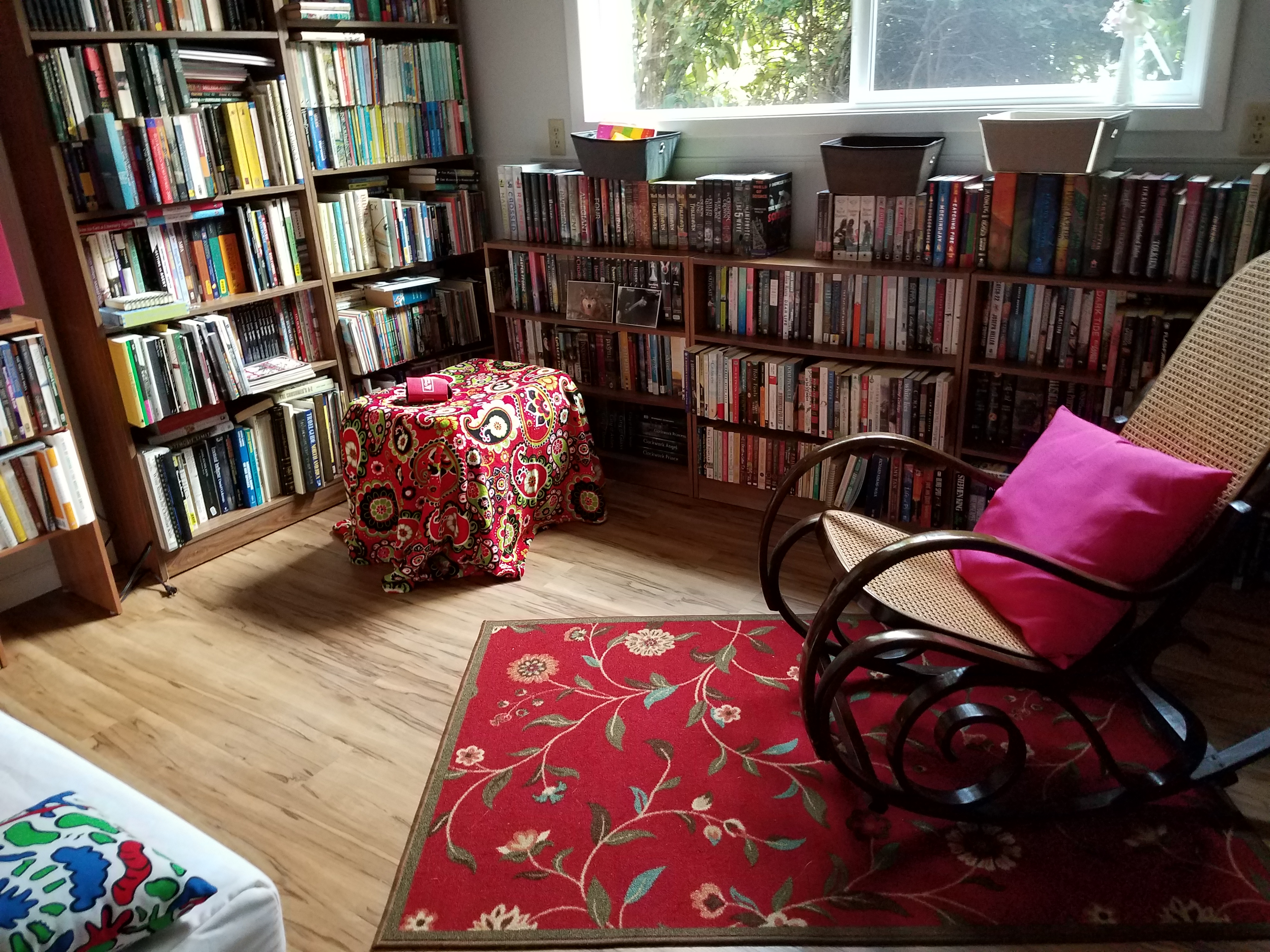 The best thing about getting flooded last year is the fact that one of our sons’ bedrooms has now turned into a library. I’ve always wanted a library of my own and, being somewhat of a book hoarder, I’ve always dreamed of having enough space to organize my books. Of course, the fact that my library’s shelves are (in many cases) stacked two deep and two high (and bending) does make it a little hard to find anything. I lost Brooklyn. Then I found it and lost A Man Called Ove, which surely should have been next to A Long Way Down. Then I forgot where the Ursula Le Guin paperbacks had been filed, though hardbacked Malafrena and the Dispossessed were safe on the top shelf. While looking for them, I realized I now had Asian novels on two different shelves, mixed up with The Thirteenth Tale and Olive Kitterege. So… I tidied my library, again. Each book like a much-loved friend, long-forgotten, long overdue an email or a letter… each character reminding and begging me to read me again… each shelf ever heavier while I cleared all the volumes from the floor.
The best thing about getting flooded last year is the fact that one of our sons’ bedrooms has now turned into a library. I’ve always wanted a library of my own and, being somewhat of a book hoarder, I’ve always dreamed of having enough space to organize my books. Of course, the fact that my library’s shelves are (in many cases) stacked two deep and two high (and bending) does make it a little hard to find anything. I lost Brooklyn. Then I found it and lost A Man Called Ove, which surely should have been next to A Long Way Down. Then I forgot where the Ursula Le Guin paperbacks had been filed, though hardbacked Malafrena and the Dispossessed were safe on the top shelf. While looking for them, I realized I now had Asian novels on two different shelves, mixed up with The Thirteenth Tale and Olive Kitterege. So… I tidied my library, again. Each book like a much-loved friend, long-forgotten, long overdue an email or a letter… each character reminding and begging me to read me again… each shelf ever heavier while I cleared all the volumes from the floor.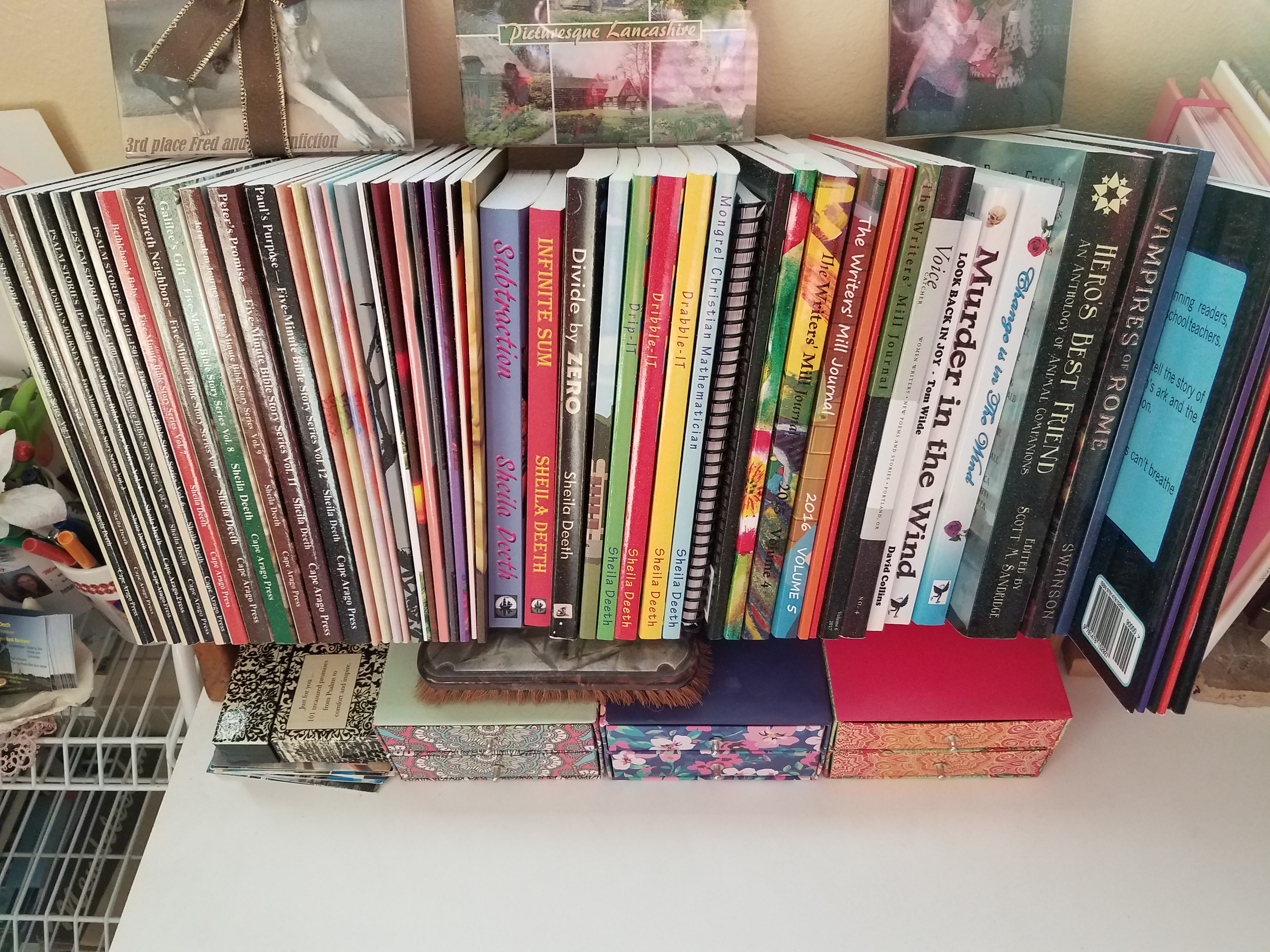 Then there’s that secret shelf upstairs, where I hide my dream that someone might file my books in a library one day. Novels of small-town characters together with Biblical fiction for kids and novellas mysterious and strange… short stories in anthologies… even poetry and picture books! Would they ever go on the same shelf as each other?
Then there’s that secret shelf upstairs, where I hide my dream that someone might file my books in a library one day. Novels of small-town characters together with Biblical fiction for kids and novellas mysterious and strange… short stories in anthologies… even poetry and picture books! Would they ever go on the same shelf as each other?